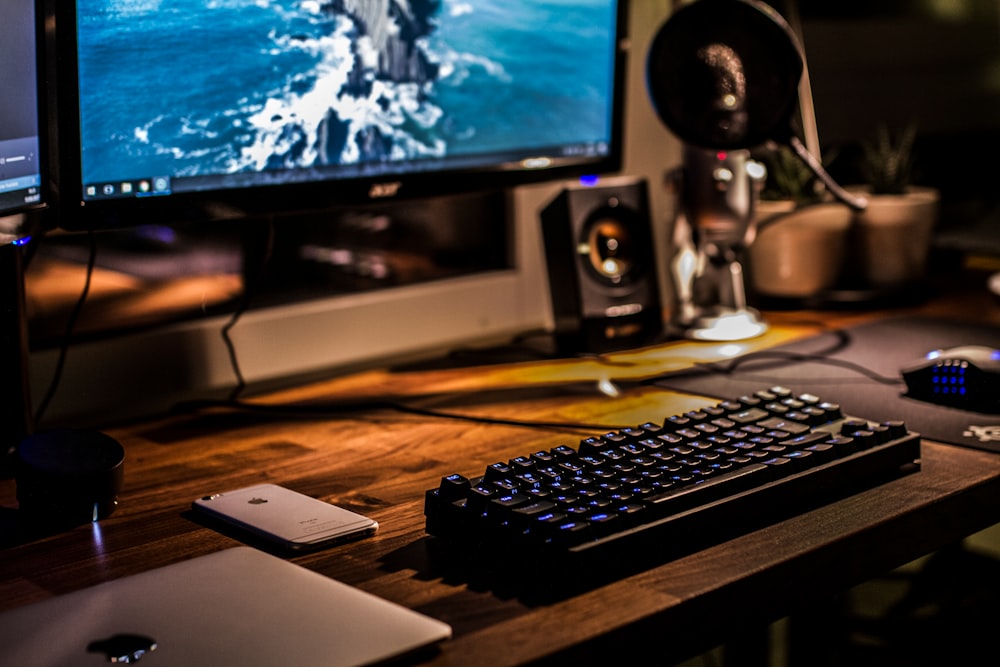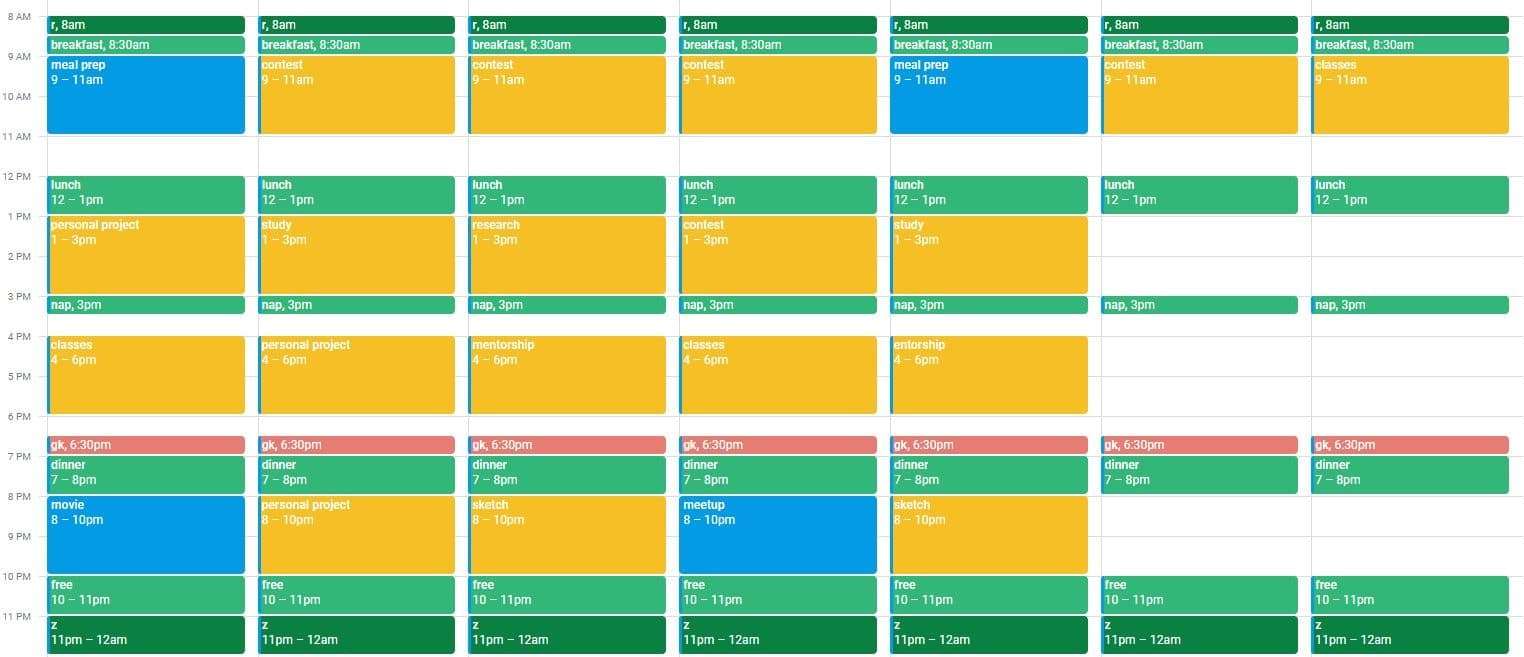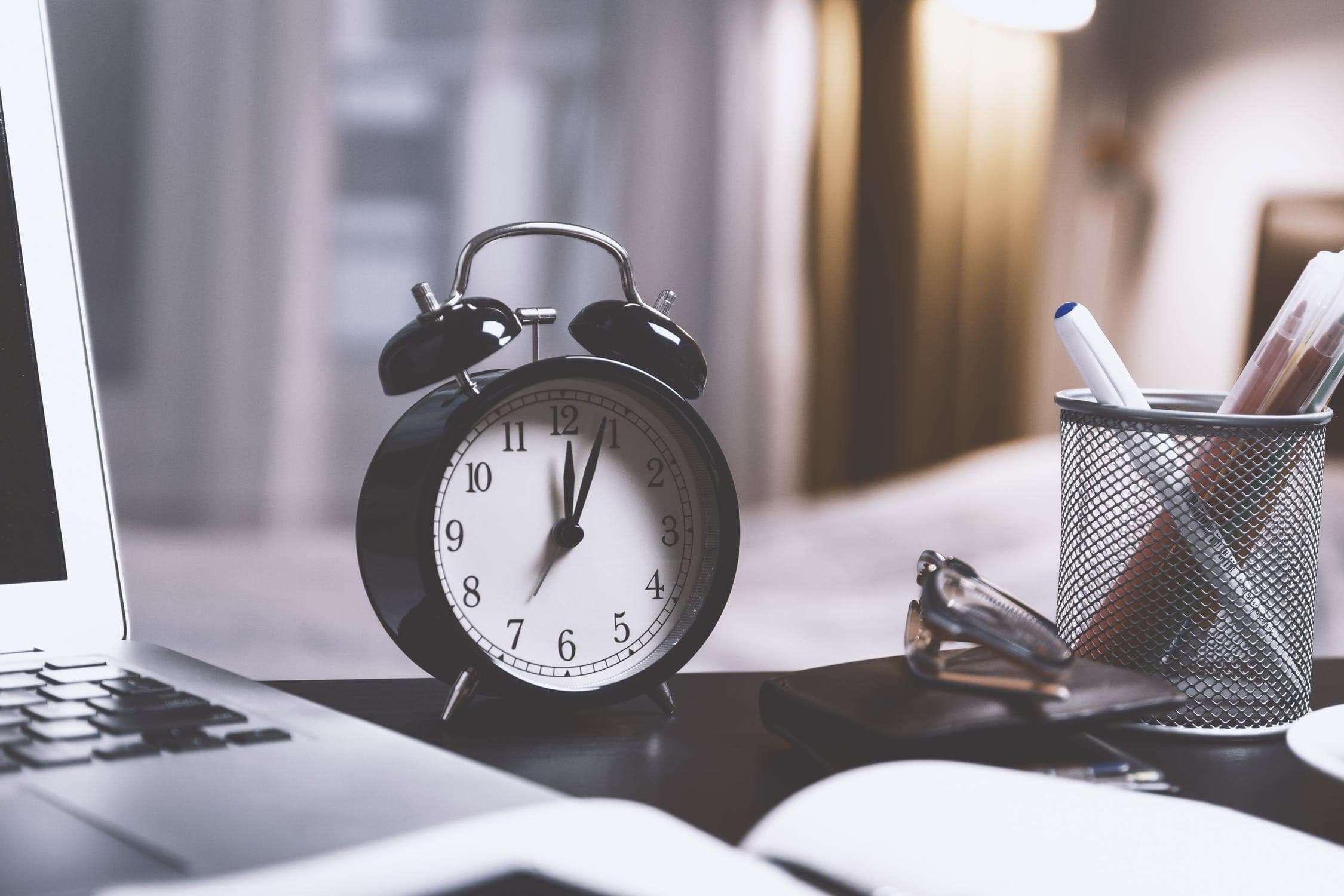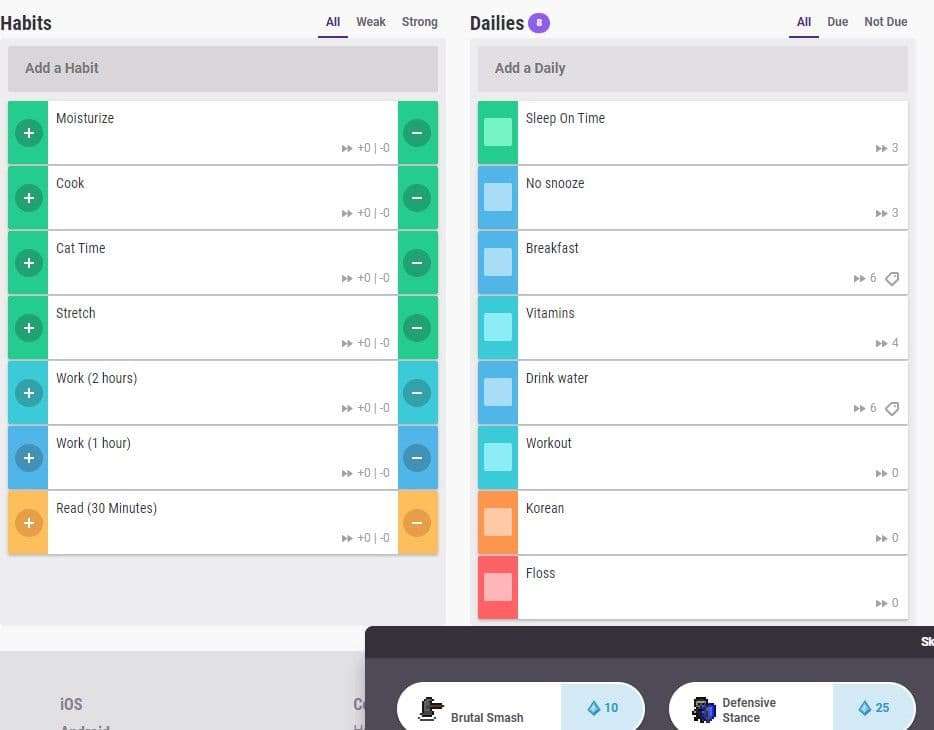
Being a digital artist requires a lot of mental effort, and sometimes it can be hard to stay focused - especially when working from home. There are countless distractions and less support at hand. To help you kick some ass, here are some great tips by Ryan Chan to help you complete more work, end your procrastination and stay productive.
Drop Distractions‒‒Yes, Your Phone
First things first, do yourself a favor and make it easier for you to concentrate. Whenever your phone pings you, it interrupts your flow and kills your ability to focus. The solution is to put your phone in another room and silence all the notifications. When it is harder for us to get instant gratification, we are more likely to stay in our chair and work.
The people around you can also be a huge distraction. It is important to set boundaries with people regarding your work-space. Leave a note up for your co-workers or family members so they know not to interrupt you during work.

Create Environmental Triggers
If you struggle with procrastination, try to create environmental triggers for yourself. Just like how your phone triggers you to waste time on social media, utilize this mind trick and change the outcome. Set up your work space in advance to minimize the steps needed for you to start working. Open up Photoshop, set up your tablet, open the files you need before you sleep; you'll wake up the next morning, immediately ready for work.
If you work at home, try to have a dedicated work spot. We associate sleep with our beds and free time with our rooms, so it's naturally harder for us to switch to work mode in that environment. Work in the living room instead, maybe start your day at a coffee shop if you want. Another trick is to change clothes. Take a shower and get out of your pajamas, tell your brain that "it's work time".
Try “Time Blocking”
The gist of Time Blocking is to allocate fixed time periods to individual tasks. By blocking out tasks ahead of time, you are more likely to follow-through. If you want to work on something, instead of saying "I'll do it tonight", estimate how long it'll take you and state the start time and completion time for that task.
This method is very flexible as you can move tasks around and adjust your plans according to your other schedules. Another benefit of Time Blocking is that you'll have a copy of your time spending. You can do this on paper but I find it easier with digital calendars. Here’s a great video by Paul Minors demonstrating the use of Time Blocking.

Remember to leave some room for downtime and always give yourself extra time‒‒if you think you can finish a task in 1 hour, give it 1 hour 30 minutes.
If you feel like you're always doing less than you plan to, I recommend investing a few days to monitor how you spend time. You'll be surprised how much time you spent watching Netflix, playing video games, or responding to text messages.
It is important that you stick to your schedule, even when you don’t feel like it; you’re never going to feel like it. Acknowledge your emotions, and do it anyway. Most of the time we will continue working once we get past the initial resentment.
Make Yourself Accountable
When there is no deadline or penalty, we tend to delay our plans. Set deadlines for your projects so there’s a sense of urgency. Once there is a “due date”, it’ll be easier for you to manage your time and resources.
I recommend having a partner-system. Find someone to hold you accountable for your actions, and to make sure you are on schedule. This person can be your classmates, co-workers, teachers, or even your family members. Another way to do it is to announce your goals on social media. Let the world know that you are doing something, and it will be done by a certain time.
The Pomodoro Technique
If you can't focus for a long period of time, try making your work segments into smaller chunks. Break your work time into 25 minute segments followed by 5 minute breaks. After 4 work segments, take a longer break. Repeat the process. There are various free Pomodoro timers you can find online, pick one that suits your style.
If something comes up during work segments, write it on a piece of paper and deal with it later. The short work intervals make it less daunting for you to start, and the breaks allow you to rest and recharge your attention span, letting you focus for a longer time.

Take Care of Your Health
Often times we overlook our health when we are too focused on the outcome. We can’t produce good work without a healthy mind and body. If you feel stuck or burned out, these might be the reasons:
You’re not sleeping enough
An average adult needs at least 7-9 hours of sleep. If you experience daytime fatigue and have trouble focusing, it might be linked with your sleep deprivation.
The most important step is to stop snoozing in the morning. Have you noticed that when we wake up at a consistent time, we're usually awake by the time the alarm goes off? That's our brain telling us to get ready to get up, nearing the end of our last sleep cycle. If you fall asleep again after snoozing, you will wake up in the middle of a new sleep cycle, instead of at the end of a full sleep cycle. This is called sleep inertia; it impairs your cognitive ability and motor dexterity, makes you feel groggy and tired, and can last up to 4 hours.
Put your alarm in another room if you like snoozing. I like to keep my phone in the washroom, next to the sink. When my alarm goes off, I have to run to the washroom to turn it off. It is then easy for me to make the decision to wash-up and start my day, since I'm already in the washroom. Make sure your alarm is loud enough to hear it across the room.
You’re not exercising
If you are always tired and unmotivated, it might be because of your inactive lifestyle. When you exercise, your brain releases more ATP, a chemical which your body uses as energy. The boost of energy allows you to be more productive and concentrate better. Additionally, the health benefits from regular exercise can prevent you from developing chronic diseases and gaining weight.
Remember to move around once every hour or so, let your blood circulate. During your breaks or workouts, stretch your body and let your eyes rest. You do not want to lose the ability to draw due to poor eyesight and muscle pain.

There is a problem with your diet
If you don't eat break breakfast, try to make a change starting today. After a night of sleep, your body needs to replenish its blood sugar level. A proper breakfast can boost your concentration and memory. You're also less likely to over eat later in the day, or feel hungry when you work.
Eating the right food is also important for our body to function properly. Make sure your body has all the necessary nutrients from fresh fruits, vegetables, and meat. When your stomach is upset it directly affects your mood. Try to avoid eating fast food which is high in sugar, salt, and fat. Remember to stay hydrated and watch your caffeine intake.
Reward Yourself
It is important for us to feel rewarded by what we do. Help your brain associate working with positive feelings. Go for the food you enjoy after you complete your tasks, have a cup of coffee, play some video games. Make sure to only reward yourself after you have accomplished something, and that the rewards are healthy.
I like to use a free tool called Habitica. It is an RPG simulator which lets you create your own "missions" as if you're playing a real life video game. The main objective is to collect stronger gear and items which will help you fight off bosses faster. You earn resources whenever you complete missions. The gratification of leveling up and obtaining resources makes me more eager to work and complete everything on my list. I highly recommend this tool for those who love RPG games.

Look For Other Inspirations
Sometimes we have to take a break. Learn about other cultures, read the books you've always wanted to read but didn't have time for, learn a new language. You might just find the right inspiration while doing something totally new.
Part of the reason why I wanted to write this article is to remind myself of ways to be more productive. If you're in a rut, know that you will eventually get out and become even better. The key is to start small and focus on small victories. I hope these tips can help you achieve more, and most importantly, have fun in what you do.
